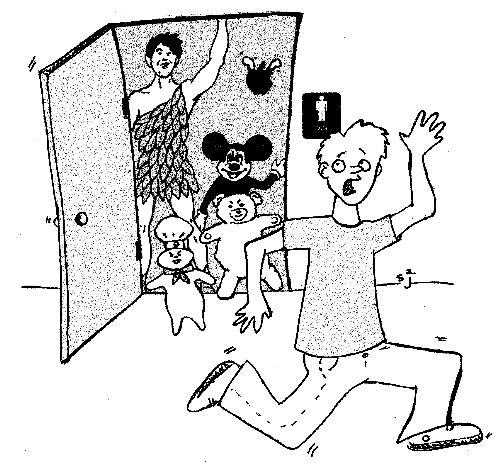
News
Cambridge Residents Slam Council Proposal to Delay Bike Lane Construction

News
‘Gender-Affirming Slay Fest’: Harvard College QSA Hosts Annual Queer Prom

News
‘Not Being Nerds’: Harvard Students Dance to Tinashe at Yardfest

News
Wrongful Death Trial Against CAMHS Employee Over 2015 Student Suicide To Begin Tuesday

News
Cornel West, Harvard Affiliates Call for University to Divest from ‘Israeli Apartheid’ at Rally
The Advertising Invasion
Editorial Notebook

I was, of all things, using the facilities at a sushi bar in San Francisco when I had a realization. Those ever insidious pests—advertisements—have quietly made their way into even the most personal of our private moments. On one wall, behind the toilet, was an ad for the movie, “Orange County.” Behind me, above a stack of spare toilet paper rolls, was a poster for Charmin brand bathroom tissues. And beside the sink, glaring at me while I washed my hands, was an advertisement for liquid hand soap.
Needless to say, I left the room feeling uneasy. We have come to expect a certain level of invasion, grown accustomed to the corporate world subliminally and overtly attempting to infiltrate our minds’ everyday processes. But are we willing to give up the sanctity of our bathrooms?
Lately, we’ve seen a remarkable new trend of increasingly invasive ads, and in light of the Super Bowl and the current winter Olympics—which once again has been a euphoric corporate “sell-a-thon”—now is as good a time as ever to try to arrest what is quickly becoming a pressing social issue.
This growing invasiveness is not confined to the restroom. With the advent of broadband Internet access, banner website ads have evolved into full audio, moving picture “commercials” that engulf your computer screen, if only for several seconds. I thought that part of the Internet’s appeal was the websurfer’s ability to bypass things like commercial interruptions. Of course, these new digital “advances” are in addition to those incessant pop-up ads and “spam” e-mails we’ve already come to endure.
Furthermore, you may have been struck—as I was—by “Saturday Night Live’s” recent acquiescence in giving “sponsor” Budweiser a several second spot during the applause of the musical guest portion of the show. In fact, it seems quite often now we’re seeing television segments being awarded special sponsors. Indeed sports programs no longer have halftime shows; they have the “Prudential Halftime Report.” Even the Super Bowl coin toss had a corporate tagline.
And this new wave of incursion looks set to get even broader. New York City Mayor Michael R. Bloomberg recently said he planned to pursue selling corporations more naming rights on areas in city parks. Could there be an “Amazon.com Central Park” in the near future? Could “Fleet Commons” be a reality someday?
If we continue to tolerate the spread of advertisements, they will only carve deeper and deeper into our daily lives. After all, there was once a time when ads were viewed as entirely unacceptable in reputable newspapers. It’s difficult to argue that 25 years ago, people would have tolerated Budweiser sponsoring a segment on “Saturday Night Live” or corporate sponsorship of sports stadiums. The level of intrusion we are willing to tolerate has been and will continue to be pushed to new heights until consumers stand up for personal privacy and punish impertinent advertisers.
It is tempting to dismiss this invasiveness as merely an issue of annoyance—something not worth making a big deal over. But that is precisely the kind of thinking that has led to a constant degradation of standards. An annoyance can quickly become a major problem, especially if you keep reversing what you consider an acceptable level of irritation to be. It’s time to draw a line, right here: ads must end at the bathroom door.
Want to keep up with breaking news? Subscribe to our email newsletter.
